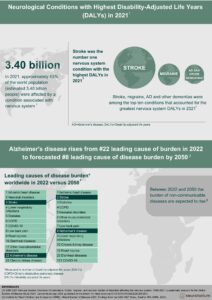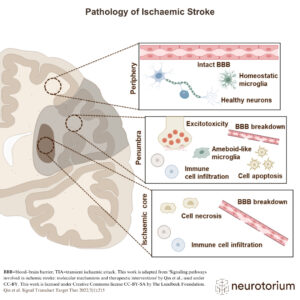In this video, Professor Sarah Pendlebury discusses the often overlooked post-stroke cognitive impairment, emphasizing its association with dementia and the common misconceptions about its impact. Professor Pendlebury also highlights the prevalence of cognitive impairment after stroke, stating that even those without prior dementia are at risk.
Professor Sarah Pendlebury underscores the importance of understanding stroke’s impact on cognitive aging and proposes interventions and long-term secondary prevention strategies. She stresses the need for personalized risk prediction and tailored interventions to address the diverse cognitive outcomes observed in stroke patients.




